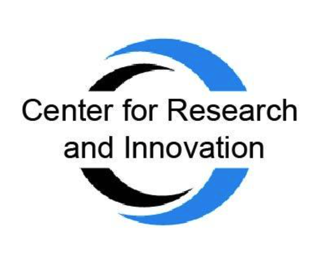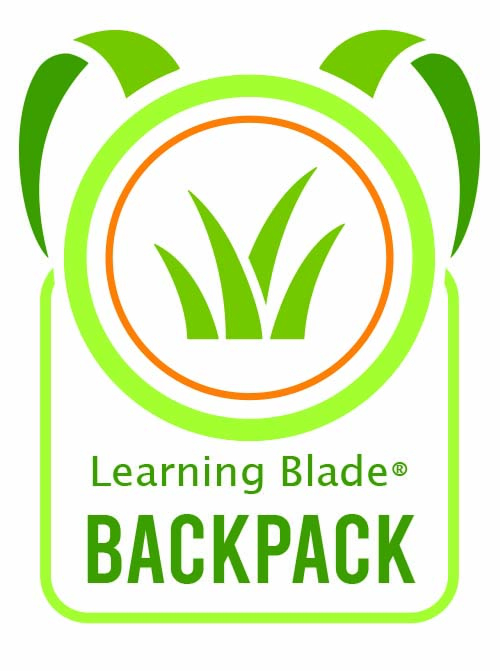| Fall 2020 Virtual Sessions: Click on the image below to access all sessions. |
|
|
|
Please note this update from the REAP team will be the final update I will be sending. My last day at the U.S. Department of Education will be Tuesday, January 19, 2021.
It has been an honor to serve in the Department, under Secretary DeVos and with so many dedicated colleagues (both appointees and career public servants) striving to do what is best for students. I also cherish the relationships I built with you and others I encountered, conversed with, and liaised with during my years here.
My personal email address can be found in the To: line of this email. Please don’t be a stranger.
And, of course, be sure to read the update from the REAP team below.
All the best, Mike |
|
The upcoming Fiscal Year 2021 SRSA Application’s New Features and Reminders
The annual application for the Small, Rural School Achievement (SRSA) grant will be available to more than 4,000 SRSA-eligible local educational agencies (LEAs) in February 2021. Each LEA eligible to apply will receive an email, directed to the LEA’s Authorized Representative listed on the FY 2021 Master Eligibility Spreadsheet, which will be posted here when available. To ensure the appropriate LEA staff member receives the application link, the Authorized Representative can be changed by emailing REAP@ed.gov or the link can be forwarded to another staff member.
Last year, the Rural Education Achievement Program (REAP) implemented grantee-provided feedback to reduce the application completion time, now estimated at 30 minutes. Although 96 percent of applicants approved of the FY 2020 SRSA application, the REAP team remains committed to continuous program improvements based on grantee feedback. To further streamline the application process, an LEA’s Data Universal Numbering System (DUNS) number will now auto-populate into their FY 2021 SRSA application. The REAP team also encourages LEA’s to check their System for Award Management (SAM) registration status prior to applying by entering the LEA’s DUNS number into the SAM Status Tracker.
All applicants will be required to submit a current General Education Provision Act (GEPA) statement. If the LEA submitted a GEPA statement on the FY 2020 SRSA application, it will auto-populate into the FY 2021 SRSA application and the statement can be updated if needed. If the LEA did not include a GEPA statement on the FY 2020 SRSA application, the field will be blank on the FY 2021 SRSA application and a new statement must be submitted. Please note the GEPA statement is the LEA’s explanation of how it will use SRSA funds to address barriers to access and participation in SRSA programs based on any federally protected categories, such as race, gender, national origin, socioeconomic status, disability, or age. A guide on writing GEPA statements, which includes GEPA statements previously submitted to the Department by SRSA grantees that were reviewed and determined to be sufficient, can be found here. |
|
 |
Today the Aviv Foundation is proud to announce the first-ever Springboard Prize for Child Welfare, a nationwide open call for exciting, early-stage projects with the potential to improve the lives of children and families navigating the child welfare system. The Springboard Prize invests in new, exciting ideas focused on preventing child neglect and abuse, lifting up children and families within the child welfare system, and assuring their well-being beyond. Four awards of $200,000 each will be given to launch new or expand existing, early-stage innovative projects with the potential to improve the lives of children and families. We especially hope to elevate the efforts of individuals with deep connections to the child welfare system, including those from low-income, Black, Brown, and Indigenous communities. We believe innovation is critical to creating meaningful and sustainable change, especially in these challenging times. The Springboard Prize for Child Welfare aims to create a more equitable and brighter future for at-risk children and families by uncovering new ideas and helping them grow. We are incredibly grateful for your support and for the important work you do in communities across the country. Please help us spread the word about this new initiative by forwarding this email to others in your network -- thank you! Sincerely, The Springboard Prize Team |
| | Read More |
|
|
| When the COVID-19 pandemic prompted a historic shutdown of US schools in the spring, state and district leaders speculated that the disruption could last anywhere from a few weeks to a few months. With a surge in new infections, the pandemic is now likely to keep many students out of the classroom until well into 2021. Educators, parents, and students know firsthand the high cost of this prolonged period of remote learning, from rising rates of depression and anxiety to the loss of student learning. The COVID-19 pandemic has taken an especially heavy toll on Black, Hispanic, and Indigenous communities. Along with robbing them of lives and livelihoods, school shutdowns could deny students from these communities the opportunity to get the education they need to build a brighter future. |
| | Read More |
|
|
|  |
Relationship Between State Virtual Schools and Rural Districts According to Elizabeth LeBlanc, co-founder with Dr. Christopher Harrington of the i4tl Center for Research and Innovation, “The way that federal funding has been allocated during the COVID-19 pandemic – particularly the calculation of each state’s coronavirus burden which uses rurality as a measure – makes it clear that at a national level, we are prioritizing rural areas as well as others that have been disproportionately impacted by the virus and also that state virtual schools and existing digital learning programs are being seen as a solution that can be scaled quickly to help address growing learning gaps. What this project hopes to accomplish by looking at highly effective rural-virtual partnerships is to identify best practices that can be quickly adopted and scaled for increased impact.”
The project is advised by an Advisory Council that meets with the research team monthly to guide and give input on the project. Advisory Council Members and Affiliate Organizations: Cindy Hamblin, Virtual Learning Leadership Alliance (VLLA) Judy Perez, iLearn Collaborative Amy Valentine, Future of Schools Allen Pratt, National Rural Education Association (NREA) Christine Fox, State Educational Technology Directors Association (SETDA) ABOUT C4RI |
| | Read More |
|
|
Over seven weeks, students will attend virtual workshops to learn reporting skills from professional journalists. They will also attend virtual lectures on liberal arts topics led by Princeton University professors. After the program, students work with a volunteer college adviser, a professional journalist, or program alum, to complete their college applications. Program dates: mid-June through early August 2021 Cost: None. There is no cost for students to participate in this program. Eligibility: To apply, students must be: - Current high school juniors (Class of 2022)
- living in the United States permanently
- with an unweighted GPA of 3.5/4.0 (or equivalent)
- who have an interest in journalism (no experience required)
- and meet one of the financial eligibility requirements below:
- The custodial parent(s)/guardian(s)’ combined income (including child support received) must not exceed $60,000 annually
- The student must be eligible for Free/Reduced-Priced Lunch.
- The student is eligible for an SAT or ACT fee waiver.
Students facing extenuating circumstances should explain their situation on the application.
Applying: The online application is available on our website and due no later than Monday, February 22, 2021. |
|
| Rural Educator Weekly Spotlight: |
|
|
|
|
Editors’ Note: On January 6, 2021, many of us watched as rioters, some of them armed, climbed over walls, broke windows, and burst through barriers to enter the U.S. Capitol to disrupt the review and counting of electoral votes leading to the certification of the 2020 presidential election. For over three hours, the Capitol building was occupied while Members of Congress and Capitol staff took shelter. Social media and news outlets showed images of rioters in congressional offices, armed police defending the door to the Senate floor, and participants, some in clothes celebrating the Holocaust or waiving the Confederate flag, in some of our nation’s most sacred spaces. In response to these events, rural educator Jesse Longhurst created a social media post encouraging educators to promote civil discourse and trust in democratic institutions. Her statement is republished here. |
| | Read More |
|
|
| Sharing Information From Our Partners and Sponsors: |
|
|
|
 |
Learning Blade is a system of interactive online lessons and printable at-home activities for 5th to 9th graders, where students learn about STEM and Computer Science careers while reviewing academics. Students can use over 400 online lessons in 12 human-centered "Missions" or stories to explore these exciting careers aligned to all 50 state education standards for grades 5-9, English, Science, Math, Social Studies. A wonderful resource for distance/remote learning as well as in-class instruction. Learning Blade has worked with rural schools in TN, AR, SC, AL, ID, MO, MN, and other states.
Learning Blade BackPack The Learning Blade Backpack app for Chromebooks allows rural students without Internet access at home to use a large library of interactive STEM lessons that expose students to high-demand careers while practicing basic academic skills. Schools that have a license to Learning Blade can have their students download the lessons while connected to the internet at school or a hotspot and can then work on the interactive lessons even where the Internet is not available. Then whenever the student connects to the Internet, the results are automatically uploaded for the teacher to review. (www.learningblade.com/backpack) |
| | Read More |
|
|
Food for Good by Pepsico Our website shows $2.25 per meal plus shipping, but please share that we will offer NREA members special pricing at $2.10 plus shipping.
https://www.pepsicofoodforgood.com/ |
|
|